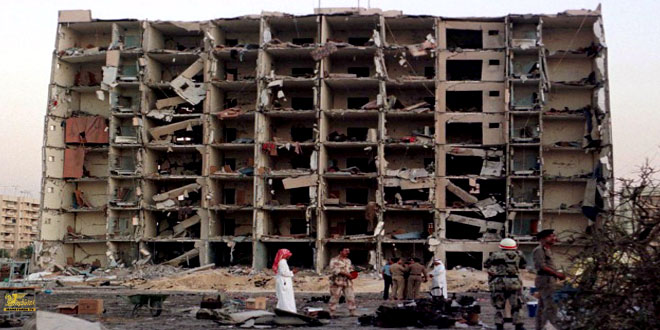
By Barbara Slavin
Chances for a more constructive U.S.-Iran relationship in the aftermath of a landmark nuclear deal are eroding with new disputes over missiles, Iran’s access to its assets in foreign banks and now a Supreme Court judgment allowing distribution of $2 billion in Iranian government money to relatives of U.S. victims of alleged Iran-backed terrorism.
In the past, American terrorism victims who have successfully won judgments against Iran were paid out of U.S. taxpayer funds. This was done to avoid violating a basic principle of international law known as sovereign immunity, under which foreign governments are not supposed to be subject to private lawsuits for fear that U.S. assets abroad could also be seized and distributed.
In 2012, Congress passed legislation to create an exception for countries on the State Department’s list of terrorism sponsors – currently Iran, Syria and Sudan. The April 20 Supreme Court ruling upholds the constitutionality of the legislation. President Obama has threatened to veto similar legislation that is pending in Congress to allow victims of the 9/11 attacks to sue Saudi Arabia.
The ruling will benefit more than 1,000 Americans who are survivors of or relatives of people killed in attacks that have been blamed on Iran-supported organizations. These include the 1983 bombing of the Marine barracks in Beirut, which killed 241 U.S. servicemen, and the 1996 bombing of the Khobar Towers barracks in Saudi Arabia, which killed 19 Americans.
Iran denies responsibility for the attacks but U.S. authorities believe it backed Lebanese Shiite terrorists in the first bombing and Saudi Shiites in the second. Iran also rejects its designation as a state sponsor of terrorism, arguing that groups such as Hezbollah are legitimate political organizations, not terrorists.

Tyler Cullis, a lawyer and policy associate at the National Iranian American Council, told this analyst that “this will be the first time that such a substantial sum of Iran’s assets will be turned over to plaintiffs.”
Cullis added that such a payout “complicates any potential claims-settlement process, which is hinged on the idea that both the U.S. and Iran will eat the claims outstanding in their own courts” against each other’s governments.
In fact, there had been progress in sorting through the commercial claims of the two countries prior to the Supreme Court decision.
The negotiations that led to the recent nuclear deal included resolution of an Iranian claim dating to the 1979 revolution for compensation for U.S. weapons ordered and paid for by the Shah but never delivered. Iran got $400 million left in a trust fund plus $1.3 billion in interest. While a senior U.S. official said at the time that Iran had sought “billions of dollars” more, critics of the deal cried foul and asserted that the Barack Obama administration was paying some sort of bribe to Iran.
Iran is also seeking U.S. help to facilitate repatriation of some $50 billion in oil revenues that had been stuck in non-U.S. foreign banks under nuclear-related sanctions that were lifted under the nuclear agreement. According to Secretary of State John Kerry, who met twice last week in New York with Iranian Foreign Minister Javad Zarif to try to resolve the issue, Iran has so far only been able to reclaim $3 billion.
Meanwhile, the Supreme Court ruling has kicked up a major debate within Iran with new attacks on the former government of President Mahmoud Ahmadinejad. Central Bank governor Valiollah Seif accused the Ahmadinejad government of negligence for investing Iran’s oil revenues in dollar-denominated securities prior to a 2008 cutoff of Iran from the U.S. financial system. Had Iran invested in non-dollar denominated assets, Seif said, it would not be liable to having that money paid out to American claimants.
The latest new wrinkle came Tuesday when the Iranian government said it would sue the United States at the International Court of Justice (ICJ) in the Netherlands to block the use of Iran’s assets to compensate terrorism victims.
It is not clear whether the ICJ has jurisdiction to hear such a suit. Instead, it appears likely that future U.S. and Iranian governments will have to add the $2 billion payout to a complicated process of claims adjustment if and when the two countries restore normal diplomatic relations.
 khalijefars News, Blogs, Art and Community
khalijefars News, Blogs, Art and Community








